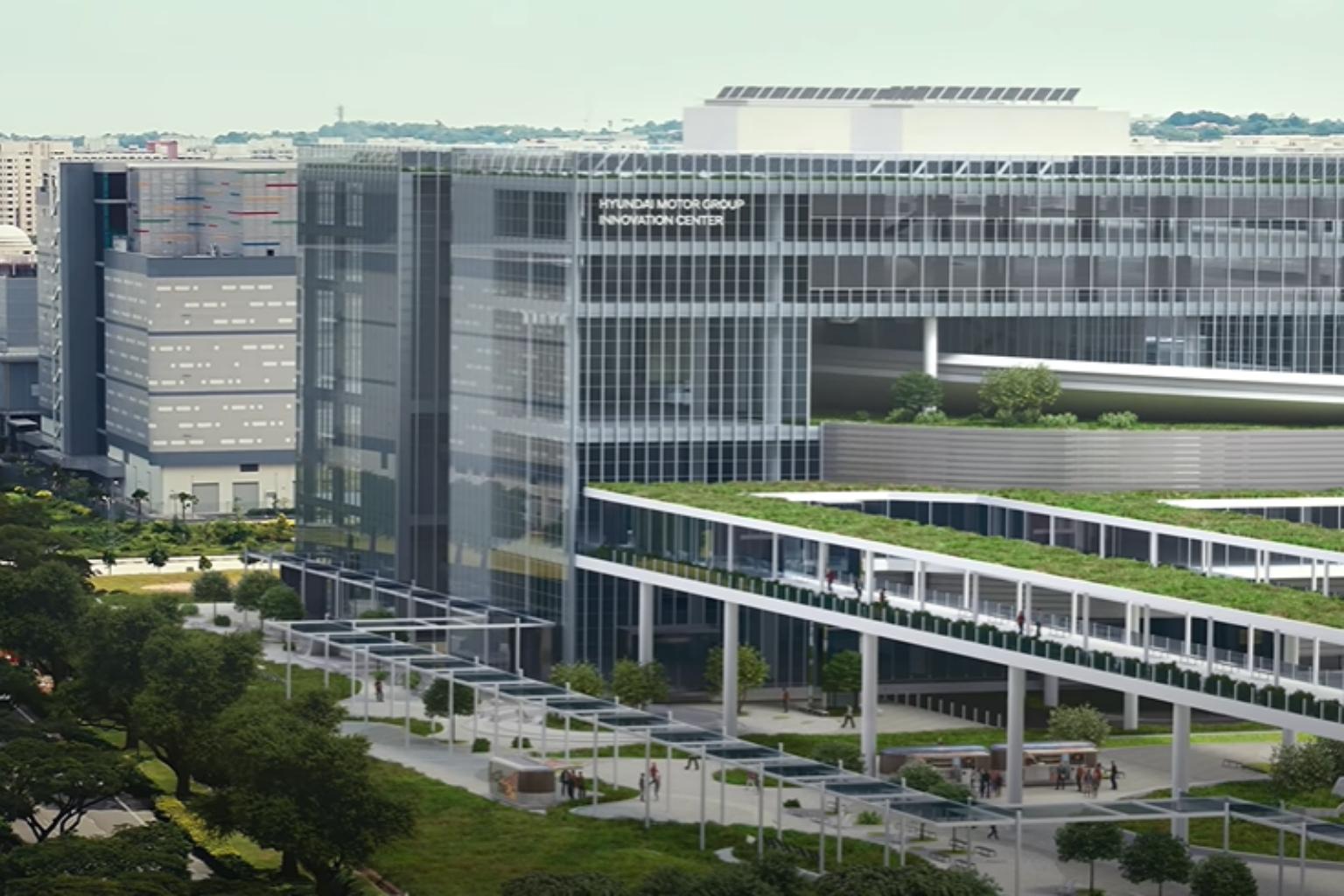Hyundai electric cars made in S'pore will be for local market first, may not be cheaper
Sign up now: Get ST's newsletters delivered to your inbox

Hyundai's upcoming plant will have an estimated annual capacity of 30,000 cars.
PHOTO: SCREENGRAB FROM HYUNDAI/YOUTUBE
Follow topic:
SINGAPORE - Hyundai electric cars made in Singapore will be for the local market initially, with export plans further down the road.
Referring to the Hyundai Motor Group Innovation Centre in Jurong, a Hyundai spokesman said: "Products built at the innovation centre will first be offered to customers in Singapore. Hyundai Motor Group will review expansion plans to other markets at a later stage."
Observers reckon that Hyundai's upcoming plant, with an annual capacity of up to 30,000 cars, will have to export, as the Singapore market is unlikely to be able to absorb all the vehicles it will produce.
Mr Teo Hock Seng, executive chairman of Hyundai agent Komoco, said he is targeting to sell 5,000 to 6,000 of the electric cars a year. The figures are higher than Komoco's average annual sales volume since its formation 30 years ago.
The Straits Times understands that models to be assembled here may include the Ioniq 5, a mid-sized electric crossover based on the Hyundai Concept 45 to be launched in South Korea next year; and the yet-to-be-announced Ioniq 3 electric compact crossover.
Production of the Ioniq 5 will start by the end of 2022, while the Ioniq 3 is expected to be produced by 2025.
Motorists hoping for Singapore-made cars to be significantly cheaper than imported ones may be disappointed.
Industry watchers said the Hyundai plant is an assembly facility and not a manufacturing facility. As such, it would have to import practically all the parts and components that go into making a car.
All vehicular taxes will continue to apply.
One possible advantage, however, is Hyundai's battery-as-a-service business model.
The South Korean company said it will explore this concept, which allows consumers to buy a battery-less electric car, and then lease the cells from Hyundai. And since the battery accounts for half or more of an electric car's cost, this concept may reduce the purchase cost substantially.
Meanwhile, Hyundai said customers will be able to purchase and customise their vehicles on their phones. Once an order is confirmed, production will begin.
Hyundai is partnering Nanyang Technological University to, among other things, find ways to facilitate "smart customising" functions that would allow customers to tailor-make their cars.
Hyundai said: "Once the car is ready for delivery, it will be transferred to a 620m Sky Track where customer can test-drive the vehicle."
The Sky Track will sit atop the seven-storey facility.
Hyundai said it will employ various advanced manufacturing and logistical systems, including artificial intelligence, Internet of Things and robotics.
These will result in a "highly automated... safe and efficient work environment".


